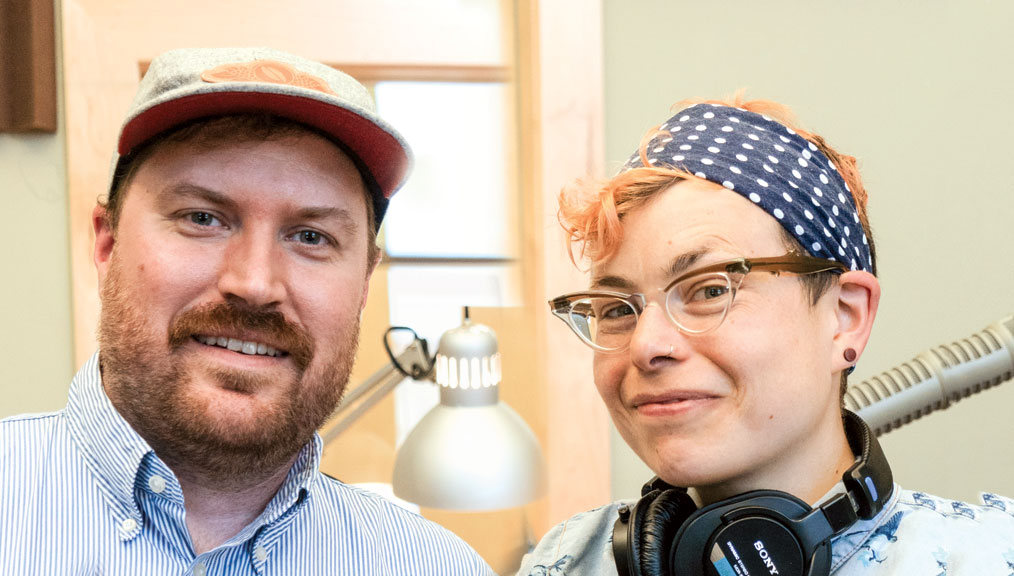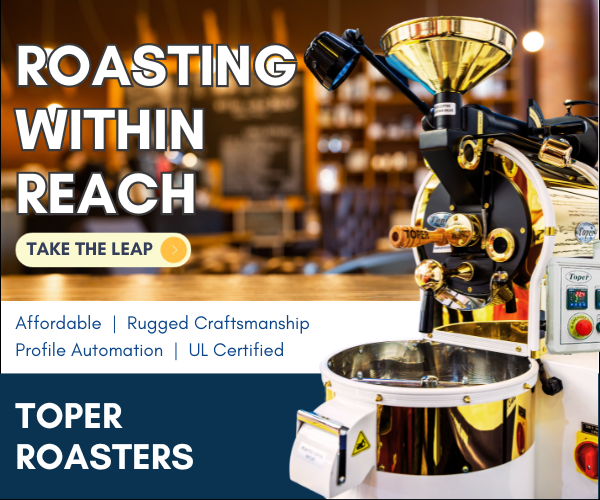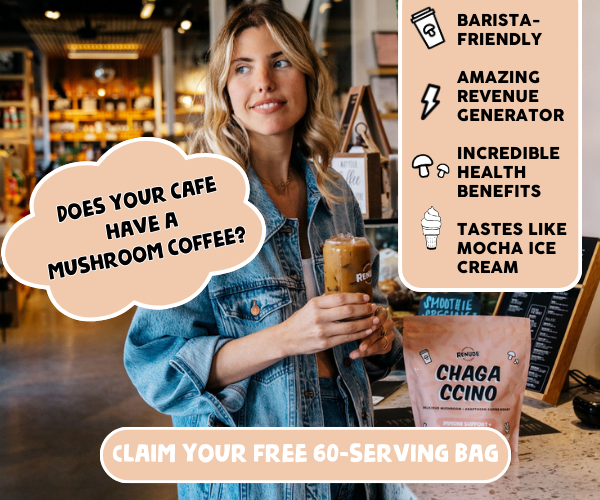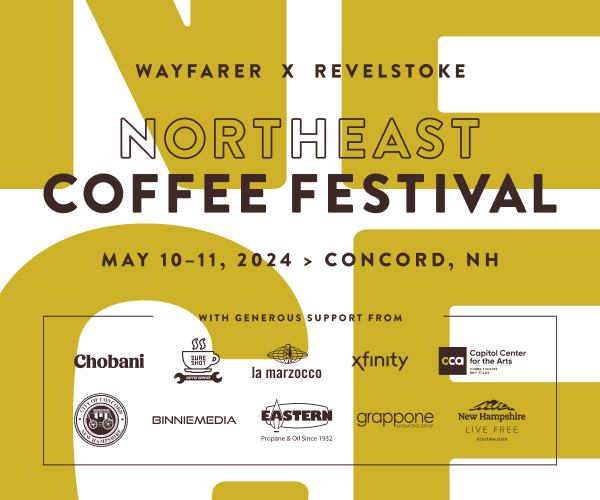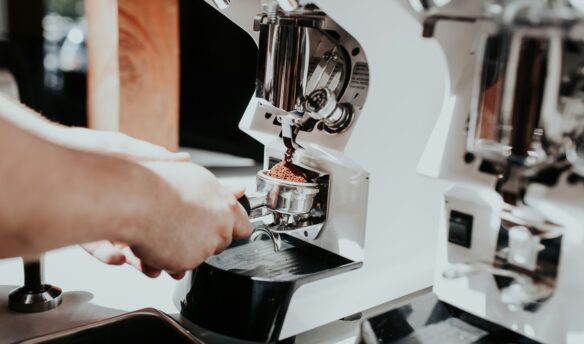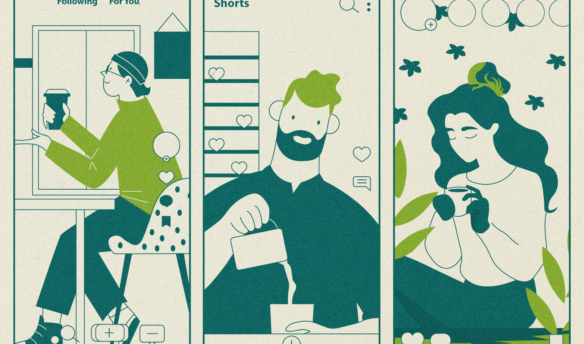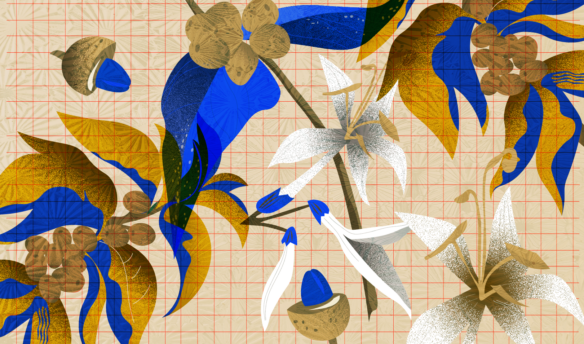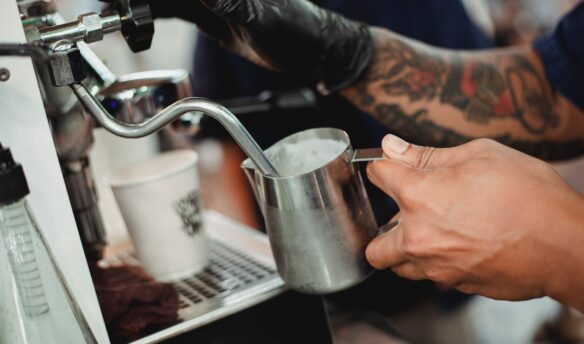(Photo: Christy Baugh.)
[A]ny coffee company is lucky when it has a charismatic employee who doesn’t just represent the business well but represents the whole coffee industry with aplomb. Cafe Imports has two such employees in Erin Meister and Joe Marrocco. Cafe Imports likely has other great champions of coffee, but it’s these two who started a podcast that offers deep insights into issues in the coffee industry.
Opposites Extract, which launched in March, is formatted as a debate between a guest and Meister or Marrocco. It’s an honest-to-goodness debate, with rules and even timers. Best of all, a coin toss determines the position each debater takes, which in one episode left Marrocco arguing, quite well, that we shouldn’t breed new varieties of coffee trees, instead letting nature do its slow work. In the episode’s second-half discussion that follows the debate, he laid out an even stronger case for why that position is wrong.
That’s where Opposites Extract excels: it offers a peek at how really smart coffee people think about coffee. Along with Meister and Marrocco, that includes a murderers’ row of guests taking on topics like consumer education, latte art, traceability, and service—and most anything that matters to anyone in the industry.
You’ll get to know Meister and Marrocco through your earbuds, so let’s find out how Opposites Extract got started.
This interview has been edited for clarity and space.
What was the genesis of the podcast?
Meister: I’d been inspired by some of the arguments that I’d seen between coffee people, on social media in particular. We’re all very passionate, that’s why we’re in this industry, and we care very much about what we do and about the belief systems we set up and the culture we’ve created around specialty coffee. But I believe we get very much into ruts with our own opinions. We’re talking into an echo chamber, listening to ourselves or people who agree with us. I really loved the idea of having to put yourself out there. Nothing is more empathetic than a forced debate. That’s where the idea for that format came in. Then, obviously, Joe is one of the best, most persuasive argumenters. I saw us as really good foils for each other.
Marrocco: A lot of people doing the best work in coffee don’t have time to debate on social media. A lot of people don’t want to argue about something, so they don’t enter into those discussions, but they are just as passionate. So we wanted to have a place where passion can be brought out of people, expertise can be heard in long form and actually put to the test, and to add a little bit of compassion to the passion. It’s a safe place where I can say something absolutely ridiculous and untrue, but something that maybe people out there are thinking, but nobody is going to come at me and say, “Well you said this one time.”
Are you trying to reach people new to coffee or is the podcast for coffee veterans?
Meister: This is the great thing about podcasts because you can see a topic and decide this one is not really for me. We aim to have a mix of topics that might not appeal to everybody all the time but do appeal to a lot at different times, depending on where they are in their journey.
Marrocco: We try to break it up within the podcast. We’ll start with a pretty generous opening where we talk from 30,000-feet about the topic so everyone can understand where we’re coming from. Then we go deep pretty quick.
What is the role of the different debates in the industry?
Meister: I think we recognize as a field that those struggles are what make us better. It allows us to tackle new ideas and tackle new conflict. But I do think that in social media, it can be very fraught.
Marrocco: I think a lot of the debate on social media is two sides that are pitted against each other, and their goal is to win. Whereas our goal is to have two sides that aren’t pitted against each other. They are on the same team, pursuing the same goal together, which is to have a more clear understanding of the topic. The world as we know it in coffee is growing at a very fast pace, and we are, in the next twenty years, going to face some major obstacles. So by practicing how we can come to agreements and conclusions and debate in a concise, friendly, compassionate, empathetic manner, I think we can set the tone for how we deal with a lot of those major issues.
You often leave the debates unresolved. But are we at a point where we need to breakdown some of the myths and assumptions about coffee and set some hard answers?
Meister: I can’t wait to hear your answer to this.
Marrocco: I think there are some areas that are black and white in coffee. And those black-and-white areas are exposed. What we’re doing is bringing light to the subject, so the contrast of the subject can be more visible to people who are listening. We don’t have to be an authority on a subject, but through the exercise of debate we can illuminate that topic. Then I don’t have to sign off by saying, “And so, we have learned . . .” If you draw your own conclusion, you own that conclusion and you act on that conclusion.
Meister: One of the greatest myths in coffee is that there are any truths in coffee.
—Cory Eldridge is Fresh Cup‘s editor.

